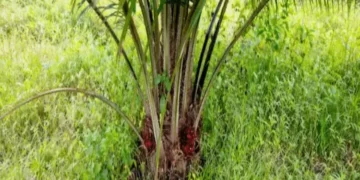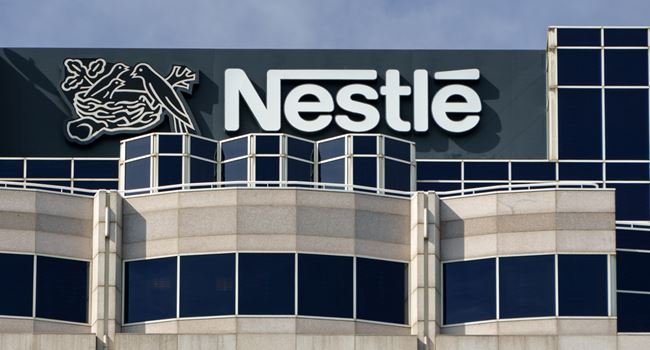Nestle Nigeria Plc (NSE- NESTLE) reported just a 1% rise in revenue with a 13% drop in profit for the nine months ended 30 September 2020, according to its unaudited financial statements filed with the Nigerian Stock Exchange.
Revenue rose by 1% to N212.7 billion for the nine months from January to September 2020 from N211.3 billion posted in 2019. In the three months from July to September 2020, the revenue rose to N71.7 billion from N69.4 billion in Q3 2019.
The cost of sales increased disproportionately with the marginal rise in revenue thus, resulting in a decline in gross profit. The cost of sales rose by 6.7% to N122.7 billion representing 57.7% of the total revenue for the nine months.
- Read also; Julius Berger reports N1.981 Billion Loss in 9 Months ended 30th Sept
- Q3 2020: MTN Nigeria Communications Plc revenue jumps tp N975.8 bn, profit drops by 3%
The gross profit fell to N90 0 billion in 2020 from N96.3 billion in 2019. The gross margin stood at 42.3% against 45.6% recorded in the same period in 2019. The gross profit for the third quarter – July to September 2020 also declined to N29.2 billion from N30.2 billion in Q3 2019.
The profit after tax dipped by 13% to N31.9 billion in the nine months under review from N36.8 billion in 2019. The net profit margin stood at 15.0%. The basic earnings per share dropped to N40.29. A profit of N10.1 billion was registered for Q3 2020, a slight drop from N10.6 billion in Q3 2019.
Major components of the expense column are
- Marketing and distribution expenses – N30.9 billion
- Administrative expenses – N9.0 billion
- Income tax expense – N17.3 billion
The company’s total assets increased by 12.5% to N217 5 billion as at 30 September 2020 compared to its value as at 31 December 2019.
Major changes in the assets column;
- Inventories – rose to N52.8 billion from N33.3 billion
- Trade and other receivables – declined to N40.6 billion from N65.8 billion
- Cash and cash equivalents – rose to N35.2 billion from N7.0 billion.
The company’s total equity declined by 26% to N41.8 from N45.6 billion in 2019 due to a decline in the retained earnings to N41.3 billion. Retained earnings is the major component of equity. On the other, the total liability increased to N175.7 billion from N147.8 billion in 2019.
Only 19.2% of Nestle Nigeria’s assets are financed by equity (N41.8 billion) while 80.8% of the assets are financed by liability.
53.8% of Nestle Nigeria’s liability is “trade and other payables” which amounted to N94.5 billion against N78.4 billion it posted in 2019.
The company holds long and short-term borrowings amounting to N17.0 billion and N7.4 billion respectively. The current tax liability stood at N25.1 billion as at 30 September 2020.
Cash flow was strong within the period in review as the cash and cash equivalent at Period end increased to N31.3 billion from N7.5 billion generated in the same period in 2019 with the operating activities generating N59.9 billion compared to N46.5 billion in 2019.
Interim dividend
An interim dividend of N25.0 per 50k ordinary shares was proposed by the Board of Directors, subject to appropriate approval and withholding tax.
The qualification is 20 November 2020 and the payment date is 7 December 2020.
The company registrar is GTL Registrars Limited.
About Nestle Nigeria Plc
Nestlé Nigeria Plc (“the Company”) is a Company domiciled in Nigeria. It was incorporated on 25 September 1969 and listed on the Nigerian Stock Exchange on 20 April 1979. The address of the Company’s registered office is at 22- 24, Industrial Avenue, Ilupeju, Lagos. The Company is listed on the Nigerian Stock Exchange.
The principal activities of the Company continue to be the manufacturing, marketing, and distribution of food products including purified water throughout the country. The Company also exports some of its products to other countries within and outside Africa.
On Friday the equity price rose by 10.0% to N1421.70 per share. YTD the price is down by 3.28%. in seven months the share price is up by 85.8% as it was trading at N765 per share on 1 April 2020.
By; Ifunanya Ikueze























































